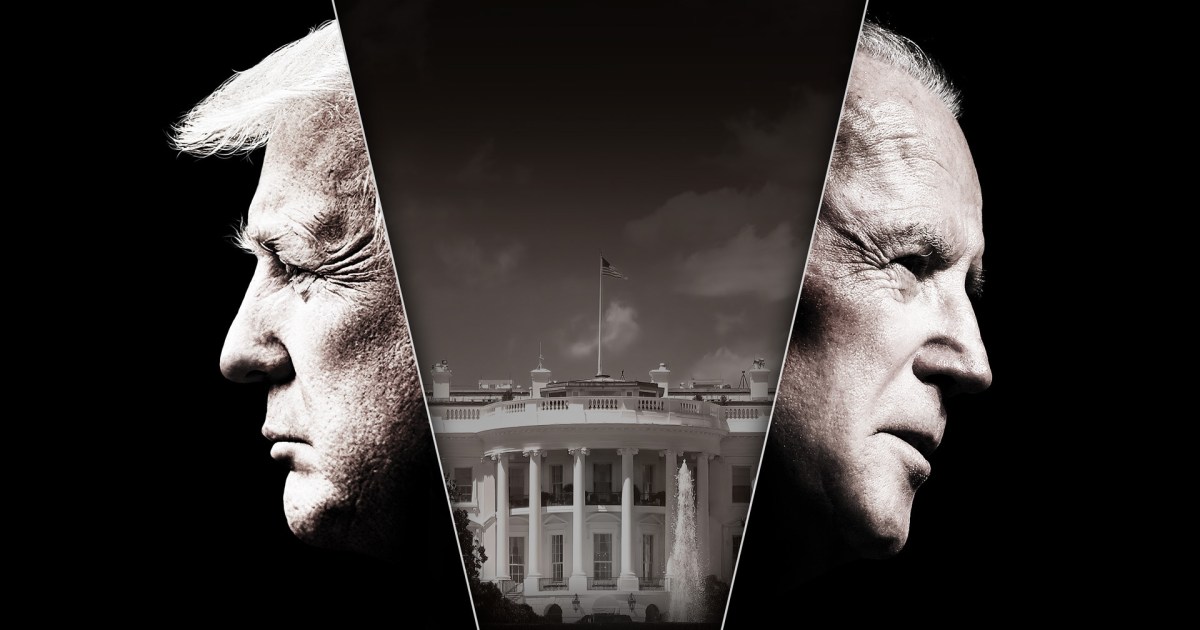The US presidential elections are much awaited, not only in the US but in many parts of the world. However, have you ever thought, what will happen if the presidential candidate dies before the election?
Election Day in the United States is just around the corner. With just around one month left to the US presidential election, we are all filled with many questions about the policies and their outcomes. However, have you ever thought about, what will happen if a presidential candidate dies before the elections?
It’s an awkward but reasonable inquiry. The peaceful transfer of power is a defining trait for democracy and occurs every four years in the US. President Trump and former Vice-President Joe Biden are well on their way to facing off in November, but it’s important to note that both the candidates running for the post of President have quite a number when it comes to age.
The 74-year-old President and the 77-year-old former Vice-President are two of the oldest presidential nominees in the history of US elections, and therefore, it becomes important for us to understand that what’s next if any of the two candidates will drop out of the race now before the election day?
If Joe Biden or Donald Trump dropped out, what would happen next?
Trump and Biden are both in their 7os making them the oldest major-party nominees in American history. If taking this situation practically, the elderly simply has a greater chance of dying. On top of reality, COVID-19 is particularly dangerous for those 65 and over. Though, this is a hypothetical situation, but can be taken into account as coronavirus has obviously taken over the election campaign.
So, if something were to happen to the presumptive nominee before the convention, the parties had a plan, but now the situation is quite different as elections are just one month away. Let’s take some scenarios of what could be done, if Trump or Biden, either of them drops out before the election:
Scenario 1:
If this situation has occurred before the conventions, there were many candidates open for the race and the parties would have chosen another candidate as they were having a lot of other choices. Especially in the case of Democrats, the party was having other options too with the presence of Bernie Sanders and Elizabeth Warren.
Scenario 2:
If something happened after the conventions but before the election, the national party committees would pick another nominee. Under Republican rules, the Republican National Committee could reconvene the national convention, Mike Pence would once again be the obvious choice for Republicans.
The Democrats are basically straightforward in this process and do not have the reconvene again. Like this, National Committee members of both the parties would vote to elect a new nominee.
Scenario 3:
What if something happens very close to Election Day? It would be really hard for the party to choose a replacement then or making last-minute adjustments to absentee ballots. However, it’s entirely possible that if the candidate died only a few days before November 3, voters might not know who the party’s nominee was when they go to the polls.
Let’s understand some polity
The United States is a representative democracy, not a direct democracy, so the people don’t actually elect the President. US voters elect the members of the Electoral College, and the members of the Electoral College elect the president. So, the process goes like: The people vote, then the electors vote, then Congress counts the ballots, then finally a new President is sworn into the office.
Filling the vacancy:
If a candidate dies before the general election but after they’ve secured their party’s nomination, it’s a relatively simple fix: The deceased candidate’s party picks up a replacement on the ballot on election day. But, if a candidate dies after the election, then the situation gets complicated.
If a candidate dies between the popular vote and the meeting of the Electoral College, the party fills the vacancy on the ticket.
If the candidate that dies is on the winning ticket, it’s still the party’s responsibility to provide a new candidate their electors could vote into office. But here, the political implications are more serious because it takes some of the power away from the people; they don’t get to vote again.
But what if the elected President dies – meaning the winning presidential candidate dies after the election but before the inauguration? The 20th Amendment of the US Constitution provides that if the President-elect dies, the rules of succession apply, and the Vice-President-elect becomes the President-elect.
Has it happened before?
No presidential candidate of a major party has never died or withdrawn before a presidential election. The death of a candidate could throw a wrench in the process. It has once happened in the US in 1872. It was when Horace Greeley joined a group of Republican dissenters who were against then-president Ulysses S. Grant’s re-election and formed the Liberal Republican Party. The party nominated Greeley for president.
Greeley gained more than 40 percent of the popular vote, but before the Electoral College met, Greeley died. Three electors pledged their votes for him anyway; other electors cast their Greeley votes for minor candidates instead. When the ballots went to Congress, lawmakers passed a measure declaring the Greeley votes invalid and certified the win for Grant. In the end, Grant was re-elected with 286 electoral votes.
Sometimes, the death of the candidate causes excessive repercussions for the party but also depends on what stage is the happening occurring.

